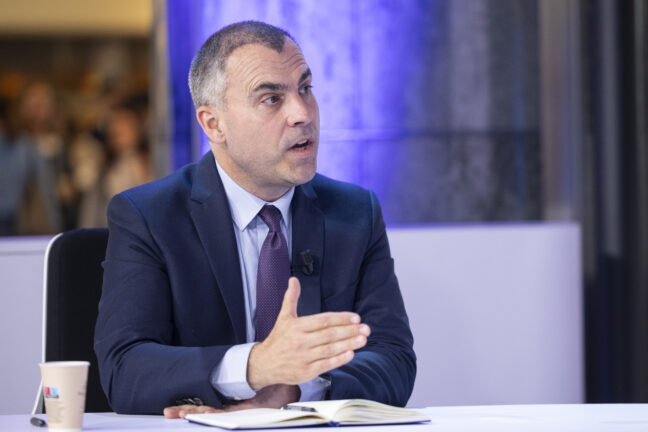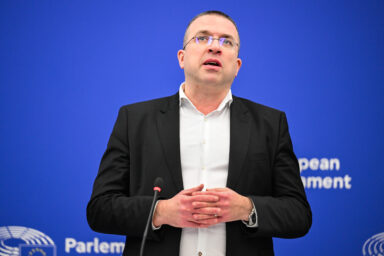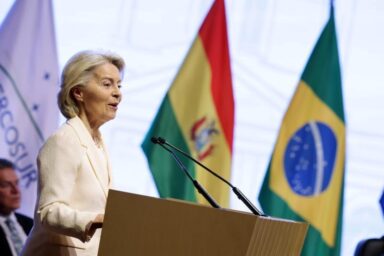We have the capacity to serve the entire European market, says Arnaud Maheas, head of public affairs Europe at Sandoz and Chair of Medicines for Europe’s Market Access Committee. He discussed drug pricing and much more in the latest EU Perspectives podcast. The episode featured MEP Veronika Cifrová Ostrihoňová (Renew/SK) and Stefano Romanelli, senior government affairs manager of the European Confederation of Pharmaceutical Entrepreneurs.
Arnaud Maheas, a senior executive at Sandoz, Europe’s last major producer of antibiotics manufactured from raw materials, knows how to be straightforward. Asked whether reducing dependency on single suppliers and regions should dominate the EU’s healthcare agenda, he replies: “Yes, it’s one of the key issues, for sure.”
Two-thirds of medicine shortages in Europe, he noted in the 26 June EU Perspectives health-focused podcast, are linked to scenarios involving fewer than five suppliers. But the problem stretches beyond corporate monopolies. Geography matters just as much.
Too many eggs, one Chinese basket
“Antibiotics are a glaring example. Europe—and the entire Western world—relies on China for penicillin, which is essential for routine surgery or cancer care. It is not good to be dependent on a single geography for that,” Mr Maheas told the podcast.
His company, Sandoz, represents a rare exception. With facilities in Austria, Slovenia, and Spain, it produces antibiotics “from scratch,” starting with raw materials rather than imported components. “We have the capacity to serve the entire European market,” he says.
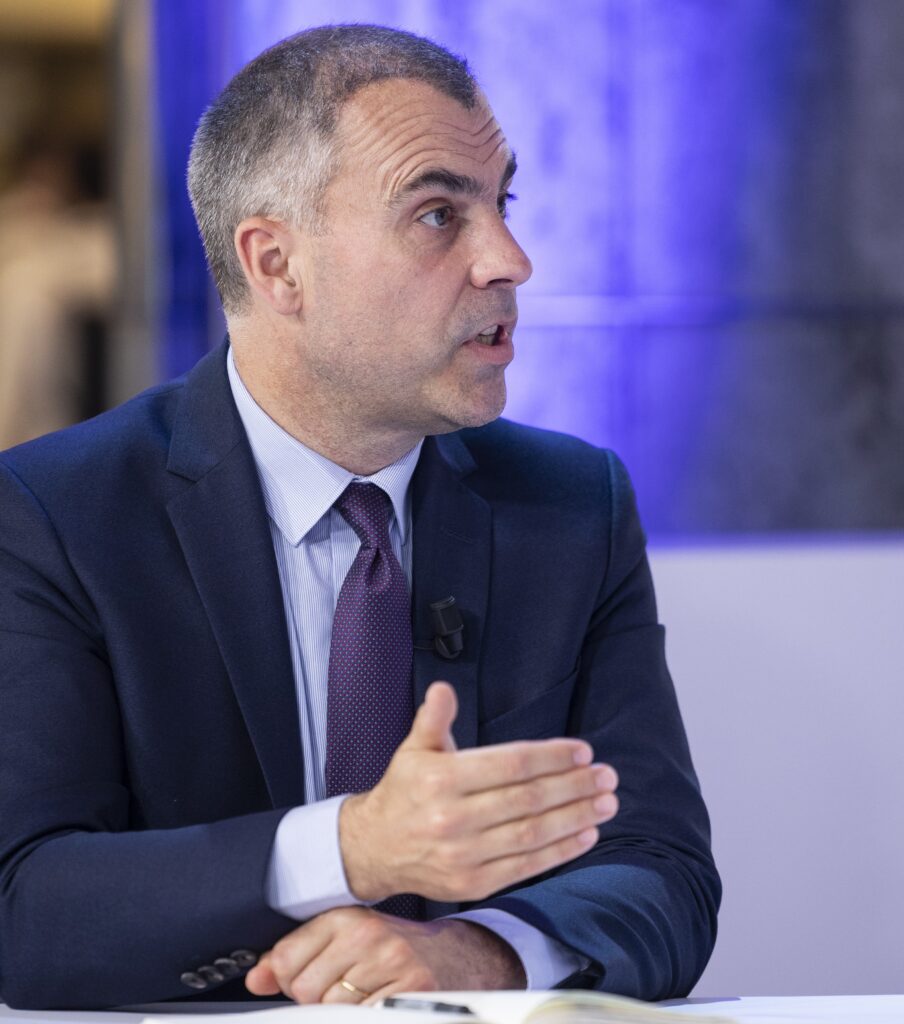
The entire Western world relies on China for penicillin. It is not good to be dependent on a single geography for that. – Arnaud Maheas, Sandoz
Retaining this capacity, however, requires urgent policy shifts. The EU’s proposed Critical Medicines Act, which examines procurement and market conditions, is “the first step in a good direction.” However, Mr Maheas insists predictability and a “strong domestic market” are non-negotiable. “There is no reason to produce in Europe if your own domestic market doesn’t reward what you’re doing. By the time there’s a crisis, it’s too late to repatriate production.”
The devil in the detail
His co-debater,Stefano Romanelli of the European Confederation of Pharmaceutical Entrepreneurs, had a different perspective on shortages. “If we look at the list of medicines that suffer from shortages, these are mostly medicines that are either generics or off patent medicines. I agree that it is important to try to diversify suppliers,“ he said.
“On the other hand, when we talk about medicines like rare disease therapies or advanced therapies, given their specificities, having only one supplier is part of the supply chain, because these medicines are such low volume that the risk of shortages are practically inexistent. So in that case, we should make some distinctions,“ Mr Romanelli argued.
You might be interested
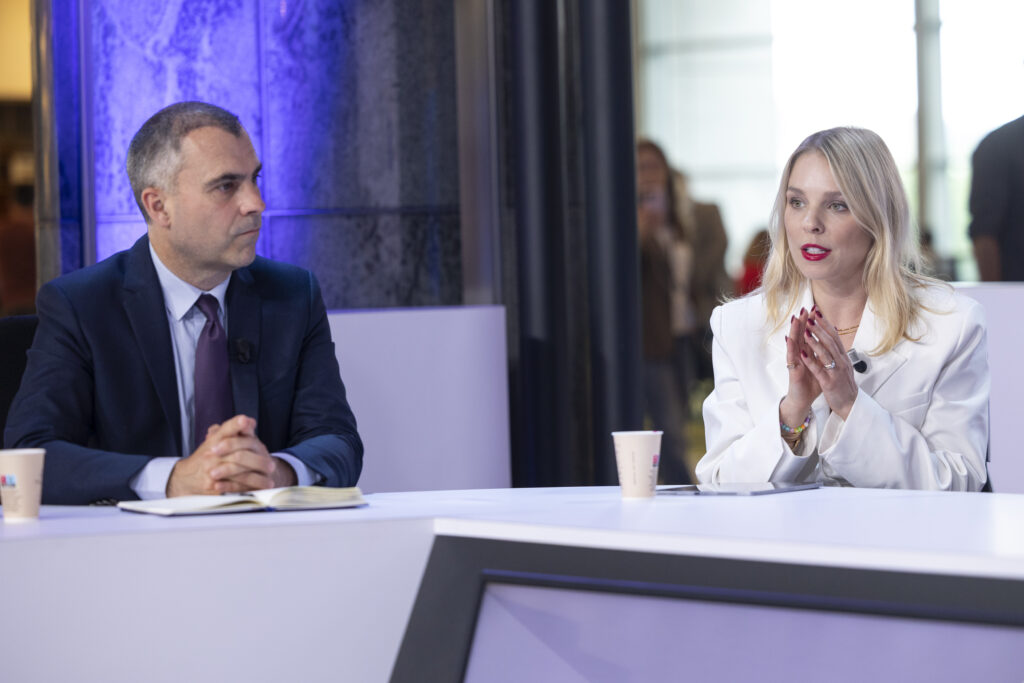
Unless we invest in R&D, innovative treatments won’t be developed here, and we’ll have to import them.- MEP Veronika Cifrová Ostrihoňová
The generics sector, responsible for low-cost medicines post-patent, faces what Mr Maheas calls a “competitiveness issue”. Production costs in Europe are high, yet generics are priced like “basic goods”—commodities such as food. “Our medicines are low-priced. That’s part of the equation. But if the price becomes lower than the manufacturing and supply cost, we have a problem—a market failure.”
A rules-prices schizophrenia
He attributes this to a disconnect between regulatory burdens and pricing structures. “We follow strict environmental rules, produce high-quality medicines, and invest in supply security. But prices don’t reflect this. We end up in a schizophrenic situation: more rules, lower prices. The consequence is consolidation and offshoring.”
When pressed on whether reshoring production to Europe would raise prices, Mr Maheas admits, “We haven’t looked at it like this.” However, he argues that generics, as commodities, require markets that “reward strategic European production.” Without this, he asks, “Why would companies stay?” He cites a recent Nato summit in the Hague, where health security was framed as national security. “In case of a crisis, you can’t rebuild supply chains overnight.”

Another co-debater, MEP Veronika Cifrová Ostrihoňová (Renew/SK), member of EP’s SANT committee, agreed Europe must act but shifts focus to innovation. “I agree we have to invest in research and innovation. Unless we do that, innovative treatments won’t be developed here, and we’ll have to import them,” she said.
A three-year wait? Not OK
Her stance complements Mr Maheas’s emphasis on predictability. “Predictability is good for stakeholders, legislators, and patients. We need less chaos and fewer makeshift solutions.”
Mr Maheas, however, highlights systemic flaws in EU state aid frameworks. Current rules, he argues, prioritise novel drug development over sustaining generics. “There’s a bias in favour of innovation when what we do is also innovative—like building AI-driven factories. But this isn’t recognised.”
He recounts a three-year wait for approval on a “very limited” subsidy. “Three years for a green light isn’t okay. Investors need faster signals.” While state aid alone won’t solve Europe’s pharma challenges, he says it could “make the difference” for firms weighing relocation.
Tax on being a patient
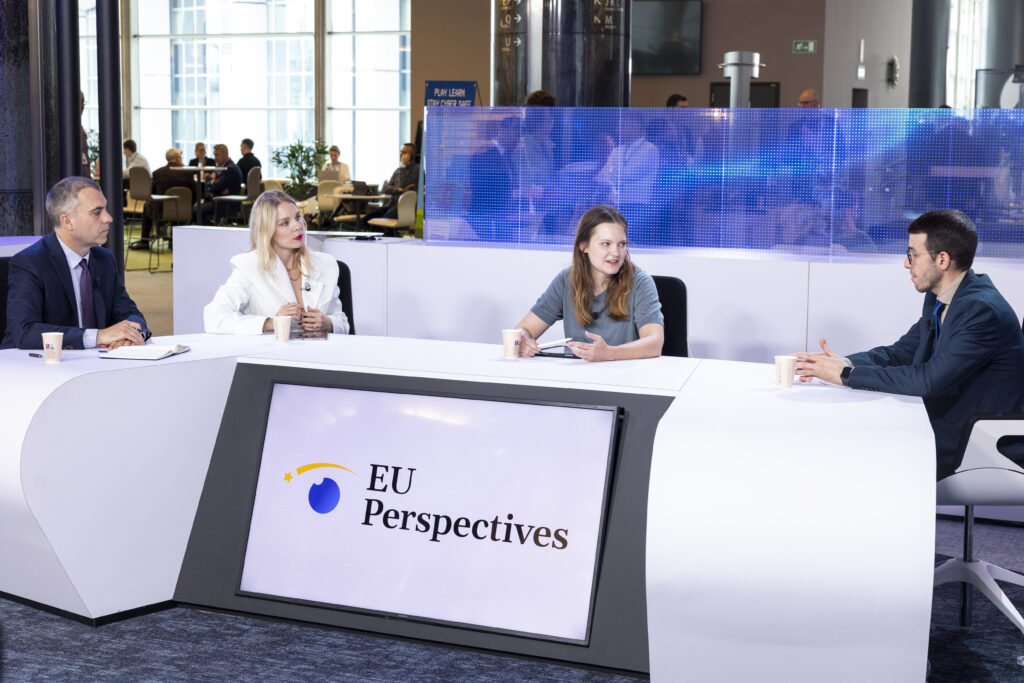
In another of the podcast topics, the EU’s wastewater treatment directive, Mr Maheas argued agains what he coaals disjointed policymaking. Though Sandoz complies with its environmental standards, he condemns the financing mechanism, which taxes drug volumes to fund infrastructure upgrades.
Mr Maheas then mentioned a specific member state example: “The Commission estimated Czechia’s costs at €14 million yearly. The Czech government now projects €250 million—10 per cent of their healthcare budget. This is not sustainable.”
He frames this as a direct burden on patients. “You cannot force patients to subsidise wastewater upgrades through medicine prices. If you have cancer or diabetes, taking pills isn’t a choice—it’s a necessity. This directive risks becoming a tax on being a patient.”
Stockpiling contradictions
National stockpiling rules further expose contradictions. Most shortages, Mr Maheas notes, are local. As a pan-European supplier, Sandoz could reallocate stocks to address gaps. However, he cited the example of Berlin’s requirement for six-month reserves, enforced with “big fines”, as a disruption to this flexibility.
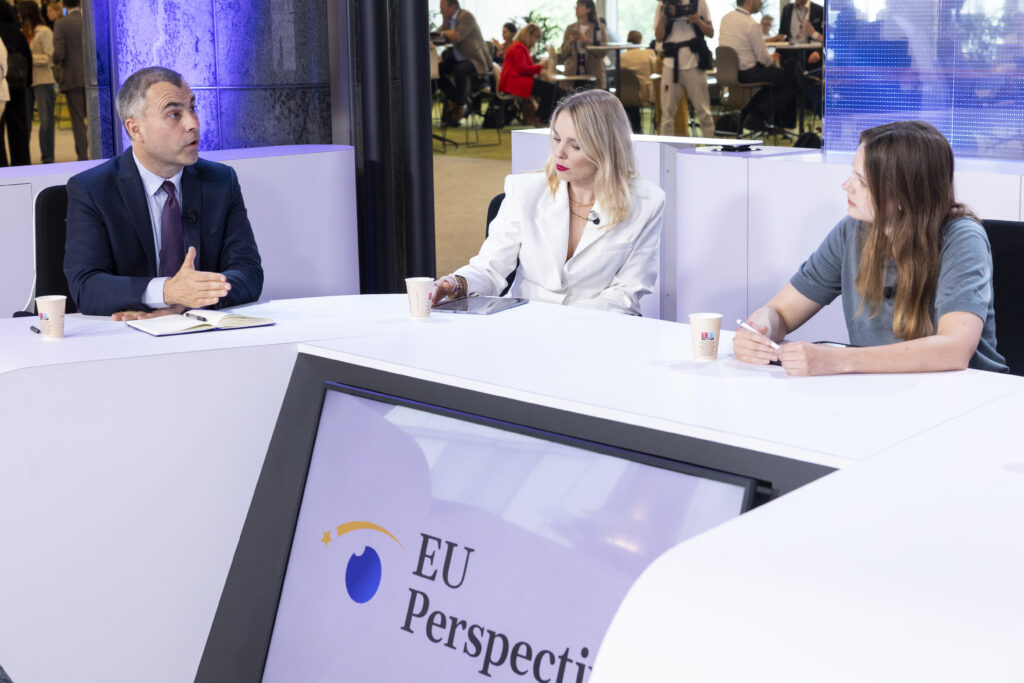
“If you’re not allowed to move stock, you solve one country’s problem but create shortages elsewhere,“ he insists. “This imbalance affects patient access across the EU.”
The Critical Medicines Act might address this, but Mr Maheas demands binding measures: “Transparency helps, but we need real control over how national rules distort the market.”
Wanted: More clarity
Mr Maheas advocated for a dedicated EU health budget line, ring-fenced and transparent, to replace scattered commitments. “If funds are scattered, they vanish in five years. We need clarity and certainty about where the money sits,” he said.
Markets need rules, and rules need markets. Europe must balance these to avoid systemic collapse. Arnaud Maheas, Sandoz
Ms Ostrihoňová agreed: “Predictability is paramount. When forming budgets or policies, we must prioritise clarity. Everyone needs to know where they’re headed.”
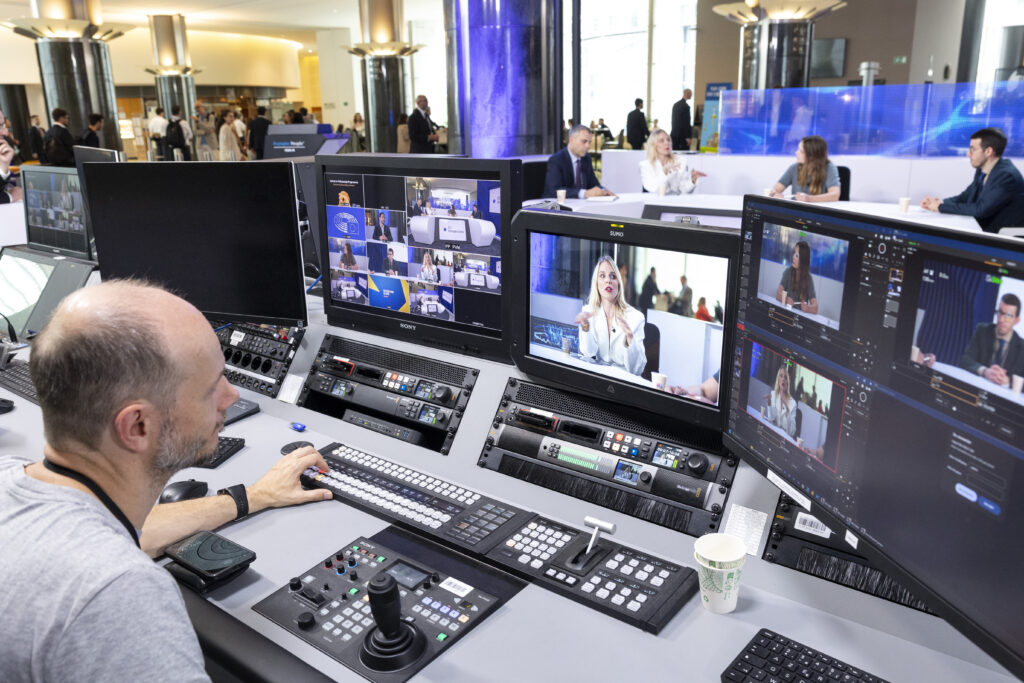
As the debate drew to a close, Mr Maheas distilled his argument: “Markets need rules, and rules need markets. Europe must balance these to avoid systemic collapse.” Ms Ostrihoňová concurred: “Predictability is where it starts.” Their alignment underscored a shared urgency: Europe’s healthcare resilience cannot withstand half-measures.
